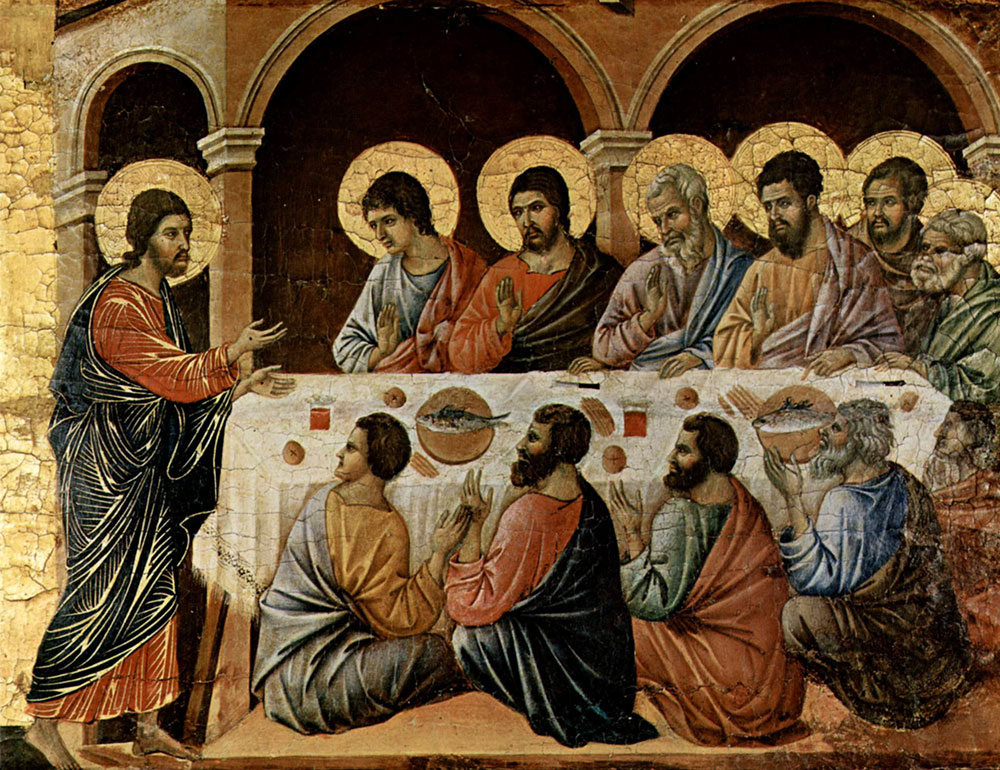A Call to Repentance and Fruitfulness
As we continue our Lenten journey, today’s readings prompt us to reflect on God’s mercy, patience, and call to conversion. In today’s Gospel, Jesus urges us to examine our lives, repent, and bear fruit. Like the Israelites in the wilderness and the barren fig tree in the parable, we can return to God before it is too late. But how often do we recognise this opportunity? How much do we take God’s patience for granted? Today’s message serves as both a warning and an invitation—an urgent appeal for conversion and fruitfulness in our lives.
Moses and the Burning Bush
The first reading recounts the well-known story of Moses encountering God at the burning bush. At this point in his life, Moses, a humble shepherd, is captivated by this peculiar sight—a fire that does not consume. God reveals Himself and His divine mission to Moses: to liberate His people from Egyptian oppression. This moment is significant for two reasons. Firstly, it shows us how God communicates with us in unexpected ways. Moses did not seek God; God specially manifested Himself. Similarly, God often calls us through the commonplace circumstances of our lives—if we are open to listening. Secondly, God discloses His name as “I AM WHO I AM.” This serves as a reminder that God is eternal, consistent, and unchanging. Even when we feel lost or uncertain, He remains faithful and present. This narrative also explores the liberation of the people of Israel. God freed the Israelites from slavery, and He encourages us today to break free from sin, addiction, and anything else that hinders us from truly following Him.
Learning from the Past
St. Paul reminds the Corinthians of Israel’s journey through the desert. Despite God’s blessings, such as the parting of the Red Sea, receiving manna from heaven, and drinking from the spiritual rock that symbolises Christ, many Israelites succumbed to sin. Their actions serve as a warning that external blessings and religious ceremonies are insufficient until our hearts are genuinely converted. Paul emphasises the necessity of humility, advising the Corinthians, “Whoever thinks he is standing secure should take care not to fall.” Lent is a time for self-examination. Are we complacent about our faith? Are we truly safe merely because we attend Mass or receive the sacraments? St. Paul urges us to remain vigilant, repent, and sincerely seek God.
The Parable of the Barren Fig Tree
In today’s Gospel, Jesus speaks of two tragedies: the Galileans slain by Pilate and those who perished when the Tower of Siloam collapsed. The people of that time believed that suffering resulted from personal sin. However, Jesus provides a clearer perspective, emphasising that suffering is not always a punishment from God. Instead, He highlights a universal truth: everyone must repent, for we cannot know when our time will come. Jesus then recounts the parable of the barren fig tree. A man had a fig tree in his vineyard that had not borne fruit for three years, which was a time to harvest fruit from the tree, but it did not. The owner proposed to remove it from the ground, but the gardener requested another year to tend to it and give it a chance to bear fruit.
This parable effectively conveys God’s patience and mercy. The barren tree represents us when we fail to fully embody our beliefs. The gardener, who represents Jesus, intercedes for us, giving us the opportunity and grace to change. However, the message is clear: our time is not limitless. If we continue to put off our conversion, we risk missing out on a genuine experience of God’s love and salvation.
Some reflections
- God’s patience and mercy: We are given more time and care to grow spiritually, like fig trees. However, time should not be wasted. How are we utilising Lent to enhance our connection with God?
God’s patience is not an excuse for lethargy but a call to transformation. - Call to repentance: Jesus’ message is clear: we must repent and return to God, not out of fear but out of love. Today’s tragedies and crises remind us of the fragility of life, even if we don’t face the cruelty of Pilate or a falling structure. The COVID-19 epidemic, unexpected diseases, and untimely deaths remind us that life is unpredictable. How are we utilising the time God has given us? Are we ready to meet Him?
- Bearing Fruit in Our Lives: Our actions, like the fruit of a tree, define us. Are we creating fruits of love, justice, and faithfulness? Some practical ways to do this include increasing prayer, serving the needy, reconciling with others, and letting go of negative habits that hinder our relationship with God.
Do our actions reflect the values of faith, compassion, and love? Or would they see a barren tree struggling to reach its full potential?
Finally, my friends, God’s mercy is abundant, but His call is urgent. We cannot afford to delay our response. Like the fig tree, we are given time, but that time is now. Imagine if this were your last Lent—what would you do differently? Would you pray more? Forgive more? Love more? Today, Jesus calls us to repent, bear fruit, and use the grace He offers us. Let us not wait for another year to pass before responding. Let us embrace this season of Lent as a time of renewal, conversion, and growth. May we truly turn to God and allow Him to cultivate and nourish us so that we may bear fruit that will last.






